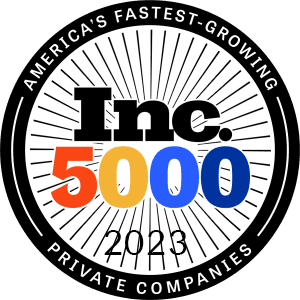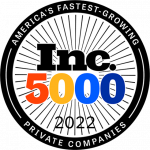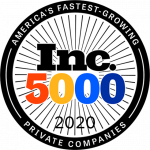How ERP Assessment Can Address Performance Roadblocks
Organizations often face the dilemma of sticking with outdated systems or adopting innovations that could transform processes. Consider ERP systems, once heralded as the backbone of operational efficiency; they now encounter challenges in adapting to evolving regulatory standards, integrating seamlessly with modern solutions, and sustaining overall organizational agility. The question now becomes personal: How can your organization identify, address, and improve these aspects to ensure the continued effectiveness of its ERP systems? The answer lies in embracing a proactive approach to ERP optimization, which empowers organizations to navigate the complexities of the modern business landscape while harnessing the power of technology to drive innovation and growth.


Identify and Eliminate Bottlenecks: Embark on an ERP Assessment Journey
Why consider Nsight for ERP Assessment?
At Nsight, our team of experts has been at the forefront of digital transformations for organizations of all sizes. As a premium partner of industry leaders such as SAP, Oracle, NetSuite, and Microsoft Dynamics, we bring a wealth of experience and a proven track record of enhancing efficiency across various enterprise processes.
We can help in optimizing your processes, making them more efficient. Additionally, we can help you identify and utilize features that may not be currently implemented or are underutilized in your current setup. Our goal is to enhance the overall efficiency and effectiveness of your operations.
Our expertise goes beyond ERP implementation, encompassing a wide array of services, including custom application development, integration, managed services, staff augmentation, cloud migration, Customer Experience/eCommerce implementation, and cybersecurity. This holistic knowledge enables us to craft tailored solutions and address the unique needs of each organization.
Nsight’s Proven Approach to Rapid ERP Assessment
In our commitment to optimizing your ERP investment, Nsight offers the opportunity to businesses to undertake our Rapid ERP Assessment. The primary objectives of this assessment are to identify the deficiencies in the current ERP implementation, assess user effectiveness, and provide remediation strategies. Our formalized approach involves:

Interviews with Business Users and Executive Stakeholders
Interviews with Business Users and Executive Stakeholders Gaining insights from key stakeholders to understand business requirements and pain points. 
Information Discovery Interviews
Information Discovery Interviews
Conduct rapid information discovery sessions with business leads
Mapping Current Processes
Mapping Current Processes
Aligning existing processes with Out of Box ERP processes.
Fit/Gap Analysis
Fit/Gap Analysis
Performing a high-level analysis to map pain points and requirements, followed by recommendations.
Master Data Review
Master Data Review Conducting a high-level review of the state of Master Data. 
Reporting Overview
Reporting Overview
Providing insights into the overall reporting landscape.
Deficiency Resolution and Future Steps
Deficiency Resolution and Future Steps
Identified deficiencies will be met with tailored solutions, aligning with the shared business requirements. Subsequently, organizations may choose to engage with Nsight to implement the suggested solutions. Post-assessment, customers gain the ability to evaluate, implement, or consider migrating to another ERP system.Every organization’s journey toward digital transformation is unique, and we recognize the importance of aligning our solutions with your specific needs. We are prepared to schedule a call at your convenience to explore this opportunity further, providing insights and strategies to unlock the full potential of your ERP system.
Empower Your ERP: Get Started with an ERP Assessment

Key Challenges with Unoptimized or Legacy ERP Systems
Compliance emerges as one of the many challenges as legacy ERP systems struggle to keep pace with the dynamic regulatory landscape. The lack of real-time data accessibility impedes strategic decision-making and financial reporting, introducing inefficiencies that reverberate throughout the organization. Integration complexities become a bottleneck, hindering the flow of information across departments and limiting the organization’s ability to adapt swiftly to market changes.
Supply chain processes, critical to maintaining operational efficiency, often bear the brunt of these challenges. Inefficient workflows lead to disruptions, impacting product lifecycle management and customer interfaces and ultimately affecting customer satisfaction.

Key Benefits of Fully Optimized ERP
Enter ERP assessment – a strategy to address these challenges head-on and make the processes more efficient. Let’s delve into those areas that can be made more efficient and agile through ERP assessment.
Businesses can elevate operational efficiency by modernizing supply chain processes by automating routine tasks and implementing streamlined workflows. Integrating ERP solutions with modern systems allows real-time visibility into supply chain activities, enabling organizations to make faster decisions.
Order Management Efficiency: By implementing intelligent order management systems, organizations can streamline the processing of orders, reducing manual efforts and minimizing errors. Elevate the efficiency of your warehouse movements and logistics processes by adopting advanced optimization techniques. Integrate automated solutions for inventory management and real-time tracking, providing better control over order fulfillment and logistics operations.
Businesses can realize cost optimization and improve decision-making by facilitating seamless access to real-time data. ERP solutions enable organizations to align financial processes with overarching business goals, ensuring that financial reporting is not just a regulatory requirement but a strategic tool for growth.
Companies can foster innovation in product lifecycle management through ERP solutions that streamline processes from ideation to market launch. Organizations can significantly reduce time-to-market by optimizing these workflows, staying ahead of industry trends, and gaining a competitive edge.
Organizations can enhance customer satisfaction and increase adoption by transforming user interfaces into intuitive, user-friendly experiences. ERP solutions facilitate a seamless and personalized customer journey, strengthening brand loyalty and overall customer satisfaction.
Beyond these core areas, ERP assessment opens the door to technological advancements that can further enhance operational efficiency across the supply chain. Integrated solutions incorporating Artificial Intelligence (AI), Machine Learning (ML), blockchain, robotics, Internet of Things (IoT), and cloud technologies contribute to a more agile and responsive organization.
How ERP Assessment Benefits You
For organizations grappling with high operational costs, inefficient workflows, business disruptions, poor user adoption, scalability challenges, and integration issues, an ERP assessment can pinpoint areas for improvement, providing a roadmap for transformative change. An ERP assessment serves as a guiding light, offering a roadmap addressing the current pain points and paving the way for a more agile, efficient, and seamlessly integrated future.






